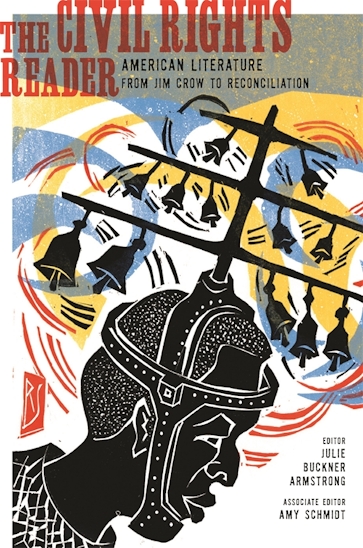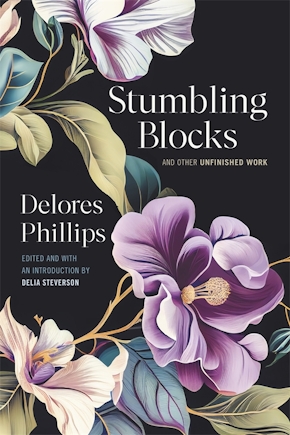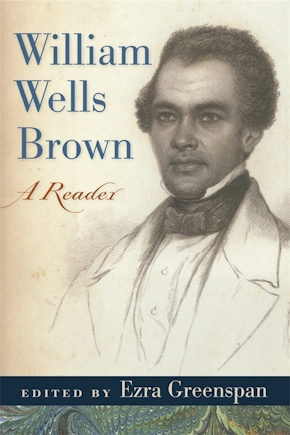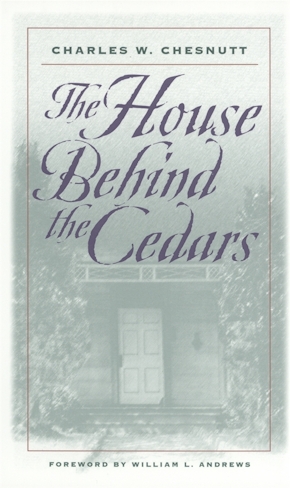The Civil Rights Reader
American Literature from Jim Crow to Reconciliation
Title Details
Pages: 392
Trim size: 6.120in x 9.250in
Formats
Paperback
Pub Date: 01/15/2009
ISBN: 9-780-8203-3225-3
List Price: $34.95
Subsidies and Partnerships
Published with the generous support of William Winter Institute for Racial Reconciliation
Related Subjects
The Civil Rights Reader
American Literature from Jim Crow to Reconciliation
Skip to
- Description
- Reviews
- Contributors
This anthology of drama, essays, fiction, and poetry presents a thoughtful, classroom-tested selection of the best literature for learning about the long civil rights movement. Unique in its focus on creative writing, the volume also ranges beyond a familiar 1954-68 chronology to include works from the 1890s to the present. The civil rights movement was a complex, ongoing process of defining national values such as freedom, justice, and equality. In ways that historical documents cannot, these collected writings show how Americans negotiated this process—politically, philosophically, emotionally, spiritually, and creatively.
Gathered here are works by some of the most influential writers to engage issues of race and social justice in America, including James Baldwin, Flannery O'Connor, Amiri Baraka, and Nikki Giovanni. The volume begins with works from the post-Reconstruction period when racial segregation became legally sanctioned and institutionalized. This section, titled "The Rise of Jim Crow," spans the period from Frances E. W. Harper's Iola Leroy to Ralph Ellison's Invisible Man. In the second section, "The Fall of Jim Crow," Martin Luther King Jr.'s "Letter from Birmingham Jail" and a chapter from The Autobiography of Malcolm X appear alongside poems by Robert Hayden, June Jordan, and others who responded to these key figures and to the events of the time. "Reflections and Continuing Struggles," the last section, includes works by such current authors as Rita Dove, Anthony Grooms, and Patricia J. Williams. These diverse perspectives on the struggle for civil rights can promote the kinds of conversations that we, as a nation, still need to initiate.
A superb anthology that insightfully captures the link between art and society. An important contribution to both the cultural and the literary history of the enduring African American freedom struggle, this volume showcases an impressive range of literary works that freshly illuminates this powerful struggle.
—Waldo E. Martin, Jr., No Coward Soldiers: Black Cultural Politics in Postwar America
The first collection of its kind, one that is much needed and long overdue.
—Christopher Metress, editor of The Lynching of Emmett Till: A Documentary History
In ways that historical documents cannot, these collected writings demonstrate how Americans negotiated the process of defining national values such as freedom, justice, and equality. Armstrong and Schmidt have gathered the works of some of the most influential writers to engage issues of race and social justice in America. The first of its kind, The Civil Rights Reader is an important contribution to both the cultural and the literary history of the African-American freedom struggle.
—Linda T Wynn, The Courier
The Civil Rights Reader is a unique and much-needed anthology of essays, drama, fiction, and poetry representing what is now called the 'long' civil rights movement . . . a valuable collection of important, powerful, brilliant literature, one I am grateful to have for my classroom and my shelves.
—Arkansas Review
Booker T. Washington
Charles W. Chesnutt
W. E. B. Du Bois
Paul Laurence Dunbar
Claude McKay
Lillian Smith
Langston Hughes
Erskine Caldwell
Richard Wright
Ralph Ellison
Eudora Welty
Robert Hayden
Margaret Walker
Gwendolyn Brooks
James Baldwin
Flannery O'Connor
Audre Lorde
Estate of Lucille Clifton
June Jordan
Michael S. Harper
Haki Madhubuti
Nikki Giovanni
Constance Curry
Toi Derricotte
Wanda Coleman
Marilyn Nelson
Rita Dove
Anthony Grooms
Cyrus Cassells
Honorée Fanonne Jeffers
Frances E. W. Harper
Mary Burrill
Angelina Weld Grimké
Dudley Randall
Martin Luther King
Howard Sackler
Eldridge Cleaver
David Hernandez
Bebe Moore Campbell
Patricia J. Williams
Walter Mosley
Amiri Baraka



